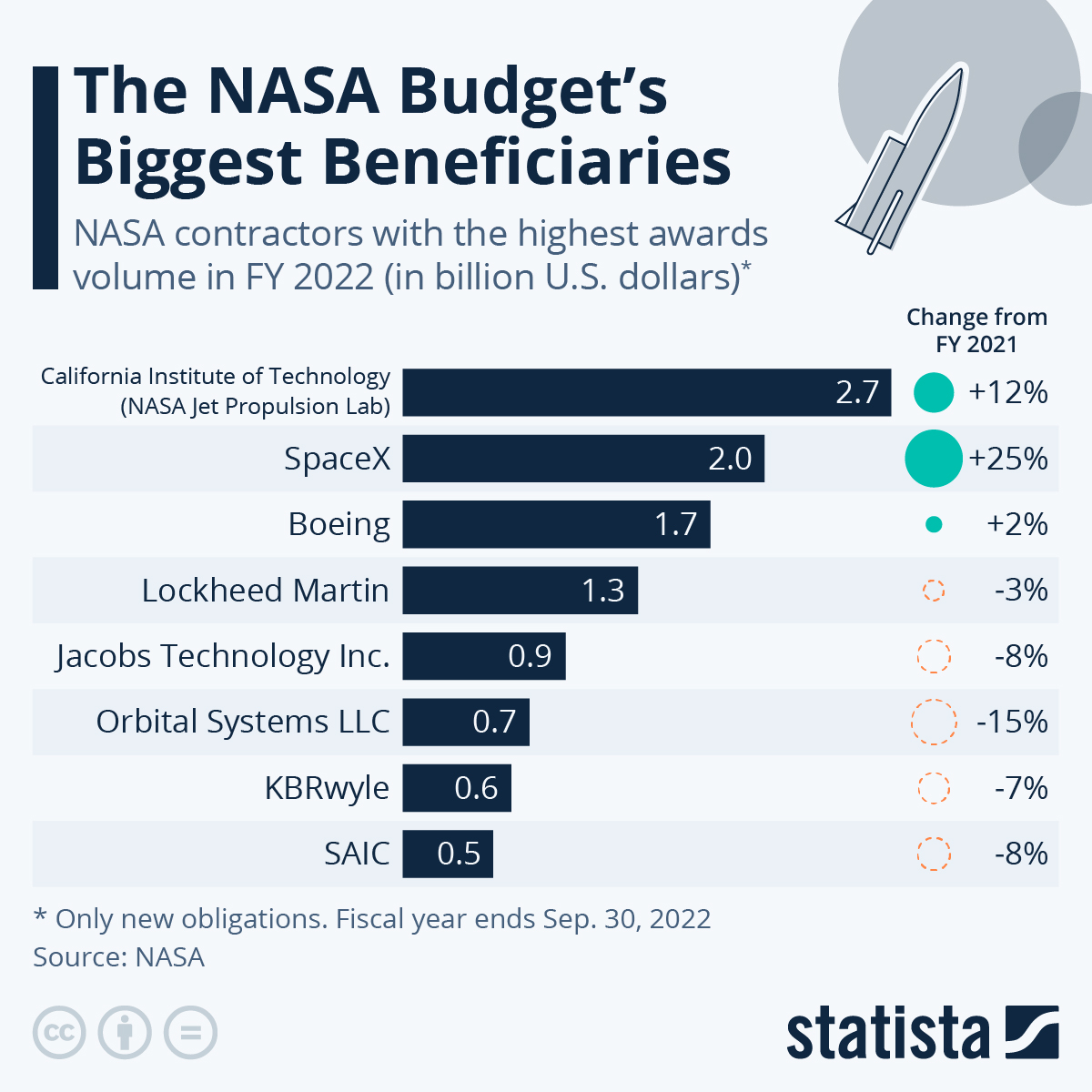SpaceX, the space company owned by Tesla CEO Elon Musk, is currently preparing the first orbital test flight of its Starship system, scheduled for March 2023. The latest rocket model is expected to transport people and cargo between Earth and the moon in the future and, according to Musk, represents an essential building block in his plan to colonize Mars. Currently, the Federal Aviation Administration (FAA) has yet to issue a license for the flight. The U.S. authority regulates rocket launches in the U.S., and numerous past planned launch dates have already been postponed due to the lack of a license. In principle, the FAA is likely to be well-disposed toward SpaceX. The company is one of NASA's most important contractors, as our chart shows.
In the fiscal year 2022, the U.S. space agency NASA awarded Musk's company about $2 billion in contract volume out of its total approved budget of $24 billion. SpaceX received 25 percent more funds than in 2021 and overtook Boeing as the agency's second-most-awarded contractor. In November, one month after the end of the previous fiscal year, NASA also announced $1.2 billion in funding for another Artemis lunar surface landing mission.
Apart from SpaceX, the California Institute of Technology benefitted the most from NASA's budget. This can be explained by the fact that the university operates NASA's Jet Propulsion Lab research facility. Between October 2021 and the end of September 2022, about $2.7 billion flowed to the university, roughly 12 percent more than the previous year. By contrast, the other top contractors, including Boeing, Lockheed Martin and SAIC, not to be confused with the e-mobility joint venture between General Motors and Wuling, were in some cases awarded significantly less budget than in the previous year.
Compared with NASA, its European counterpart, the European Space Agency (ESA), has to make do with significantly less funding. In 2022, the intranational agency had around 4.8 billion euros at its disposal, about 50 percent of which came from Germany, the United Kingdom and France alone. The latter country is also the only European state to host a space company with a significant number of rocket launches last year. arianespace carried out six launches in 2022, putting it in fifth place worldwide - well behind SpaceX and the state space agencies Roscosmos from Russia and the China Aerospace Science and Technology Corporation.





















